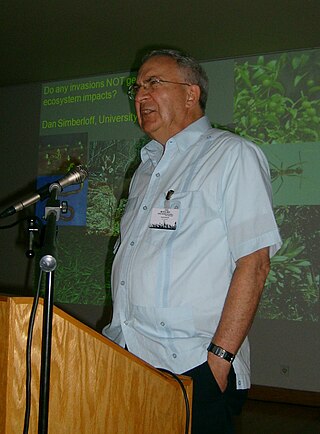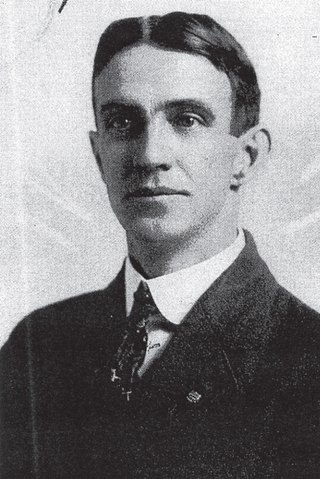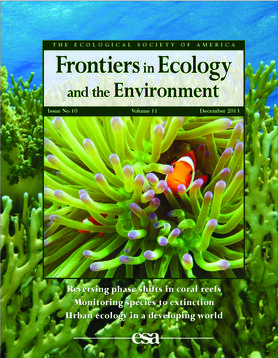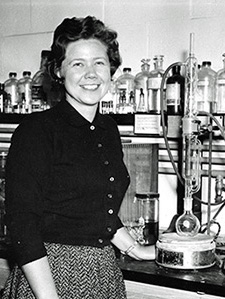Ecology is a new science and considered as an important branch of biological science, having only become prominent during the second half of the 20th century. Ecological thought is derivative of established currents in philosophy, particularly from ethics and politics.

The British Ecological Society is a learned society in the field of ecology that was founded in 1913. It is the oldest ecological society in the world. The Society's original objective was "to promote and foster the study of Ecology in its widest sense" and this remains the central theme guiding its activities today. The Society had, circa 2024 around 7,000 members of which 14% are students. Of its members, 42% are outside the United Kingdom, in a total of 92 countries. The head office is located in London.

The Ecological Society of America (ESA) is a professional organization of ecological scientists. Based in the United States and founded in 1915, ESA publications include peer-reviewed journals, newsletters, fact sheets, and teaching resources. It holds an annual meeting at different locations in the USA and Canada. In addition to its publications and annual meeting, ESA is engaged in public policy, science, education, and diversity issues.

Ecological restoration is the process of assisting the recovery of an ecosystem that has been degraded, damaged, or destroyed. It is distinct from conservation in that it attempts to retroactively repair already damaged ecosystems rather than take preventative measures. Ecological restoration can reverse biodiversity loss, combat climate change, and support local economies. The United Nations named 2021-2030 the Decade on Ecosystem Restoration.

Daniel Simberloff is an American biologist and ecologist. He earned his Ph.D. from Harvard University in 1969. He is currently Gore Hunger Professor of Environmental Science at the University of Tennessee, editor-in-chief of the journal Biological Invasions, and a member of the National Academy of Sciences.

Emeritus Professor Harry Frederick Recher RZS (NSW) AM is an Australian ecologist, ornithologist and advocate for conservation.
Frank Edwin Egler was an American plant ecologist and pioneer in the study of vegetation science. In addition to his groundbreaking research, he assisted Rachel Carson in preparing Silent Spring.

Victor Ernest Shelford was an American zoologist and animal ecologist who helped to establish ecology as a distinct field of study. He was the first president of the Ecological Society of America in 1915, and helped found the Nature Conservancy in the 1940s. Shelford's early visits and study of Volo Bog in Northern Illinois helped establish its ecological significance. Volo Bog became the first purchase of the Illinois Nature Conservancy.

Austral Ecology: A Journal of Ecology in the Southern Hemisphere is a peer-reviewed scientific journal covering research related to the ecology of land, marine, and freshwater systems in the Southern Hemisphere. It is published by Wiley and is the official journal of the Ecological Society of Australia. The journal addresses the commonality between ecosystems in Australia and many parts of southern Africa, South America, New Zealand, and Oceania. For example, many species in the unique biotas of these regions share common Gondwana ancestors. The journal was established in 1976 as Australian Journal of Ecology, obtaining its current name in 2000. As of 2017, the editor-in-chief is Nigel Andrew.

Hugh Phillip Possingham, FAA, is the former Queensland Chief Scientist and is best known for his work in conservation biology, applied ecology, and basic ecological theory including population ecology. He is also a professor of mathematics, Professor of Zoology and an ARC Laureate Fellow in the Department of Mathematics and the School of the Environment at The University of Queensland.
Richard J. Hobbs FAA, is a distinguished professor, ARC Australian Laureate Fellow and ecologist at the University of Western Australia, Perth, Australia. He is a fellow of the Australian Academy of Science and a Highly-Cited author who has written extensively in the areas of vegetation dynamics and management, ecosystem fragmentation, ecosystem rehabilitation and restoration, landscape ecology, and conservation biology. Current research focuses on managing ecosystems in a rapidly changing world.
Joseph Hurd Connell FAA was an American ecologist. He earned his MA degree in zoology at the University of California, Berkeley and his PhD at Glasgow University. Connell's first research paper examined the effects of interspecific competition and predation on populations of a barnacle species on the rocky shores of Scotland. According to Connell, this classic paper is often cited because it addressed ecological topics that previously had been given minor roles. Together, with a subsequent barnacle study on the influence of competition and desiccation, these two influential papers have laid the foundation for future research and the findings continue to have relevance to current ecology. His early work earned him a Guggenheim fellowship in 1962 and the George Mercer Award in 1963.

Frontiers in Ecology and the Environment is a peer-reviewed scientific journal issued ten times per year, and consists of peer-reviewed, synthetic review articles on all aspects of ecology, the environment, and related disciplines, as well as short, high-impact research communications of broad interdisciplinary appeal. Additional features include editorials, commentaries, a letters section, Life Lines, job ads, and special columns. It is published by Wiley-Blackwell on behalf of the Ecological Society of America (ESA). According to the Journal Citation Reports, the journal has a 2021 impact factor of 13.780, ranking it eleventh out of 279 journals in the category "Environmental Sciences" and fourth out of 174 journals in the category "Ecology".

Distinguished Professor David Lindenmayer,, is an Australian scientist and academic. His research focuses on the adoption of nature conservation practices in agricultural production areas, developing ways to improve integration of native forest harvesting and biodiversity conservation, new approaches to enhance biodiversity conservation in plantations, and improved fire management practices in Australia. He specialises in large-scale, long-term research monitoring programs in south-eastern Australia, primarily in forests, reserves, national parks, plantations, and on farm land.
Elizabeth Mary Tasker is an Australian fire ecologist. She obtained a PhD in Science at the University of Sydney in 2002. She is a researcher at the NSW Office of Environment and Heritage, and previously worked for the University of Wollongong and for The Australian Museum carrying out biological surveys in Melanesia. Her main area of expertise is the effects of fire and fire management on native animals and plants. She was a Vice-President, and subsequently Director, of the Ecological Society of Australia, the largest professional association of scientists in Australia, and a published wildlife photographer.
Nancy B. Grimm is an American ecosystem ecologist and professor at Arizona State University. Grimm's substantial contributions to the understanding of urban and arid ecosystem biogeochemistry are recognized in her numerous awards. Grimm is an elected Fellow of the American Geophysical Union, Ecological Society of America, and the American Association for the Advancement of Science.

Jean H. Langenheim was an American plant ecologist and ethnobotanist, highly respected as an eminent scholar and a pioneer for women in the field. She has done field research in arctic, tropical, and alpine environments across five continents, with interdisciplinary research that spans across the fields of chemistry, geology, and botany. Her early research helped determine the plant origins of amber and led to her career-long work investigating the chemical ecology of resin-producing trees, including the role of plant resins for plant defense and the evolution of several resin-producing trees in the tropics. She wrote what is regarded as the authoritative reference on the topic: Plant Resins: Chemistry, Evolution, Ecology, and Ethnobotany, published in 2003.

Camille Parmesan is an ecologist and an expert in the effects of global climate change on biodiversity. She is the National Aquarium Chair in the Public Understanding of Oceans and Human Health at The University of Plymouth U.K., at SETE-Theoretical and Experimental Ecology Station, CNRS Centre National de la Recherche Scientifique, France and is adjunct professor at The University of Texas at Austin U.S.A..
Priyanga Amarasekare is a Professor of Ecology and Evolutionary Biology at the University of California, Los Angeles (UCLA) and distinguished Fellow of the Ecological Society of America (ESA). Her research is in the fields of mathematical biology and trophic ecology, with a focus on understanding patterns of biodiversity, species dispersal and the impacts of climate change. She received a 2021 Guggenheim Fellowship and received ESA's Robert H. MacArthur Award in 2022.
Mark Westoby is an Australian evolutionary ecologist, emeritus professor at Macquarie University, and a specialist in trait ecology.











